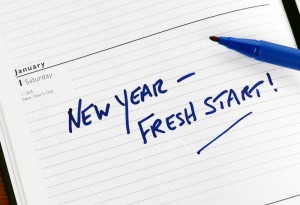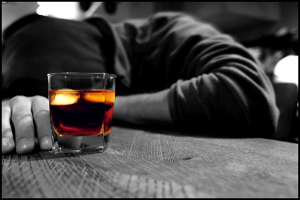 Valentine’s Day is a holiday that brings up all kinds of emotions whether you are new to recovery, have been on this road for sometime now, or are thinking about entering recovery. It can be a painful reminder of the strain that substance abuse can put on relationships, or for some it is a day to celebrate the love in their life that has overcome their darkest days. Regardless of whether you tear up or cringe at the endless jewelry commercials, or swoon at the sight of heart-shaped candy boxes or one look and your teeth begin to ache, the one person who can be your Valentine is yourself. Celebrate YOU This Valentine’s Day Read more →
Valentine’s Day is a holiday that brings up all kinds of emotions whether you are new to recovery, have been on this road for sometime now, or are thinking about entering recovery. It can be a painful reminder of the strain that substance abuse can put on relationships, or for some it is a day to celebrate the love in their life that has overcome their darkest days. Regardless of whether you tear up or cringe at the endless jewelry commercials, or swoon at the sight of heart-shaped candy boxes or one look and your teeth begin to ache, the one person who can be your Valentine is yourself. Celebrate YOU This Valentine’s Day Read more →
 January has come and gone and so have many New Year’s Resolutions. The promise to lose weight, exercise more, and get one’s health back are all popular resolutions. So is the promise to find sobriety by stopping how much you drink or use drugs. And by February many find that their desired sobriety is more difficult to obtain on their own than they realized. It leaves many wondering, why is it so hard to change? And asking when to seek professional help?
January has come and gone and so have many New Year’s Resolutions. The promise to lose weight, exercise more, and get one’s health back are all popular resolutions. So is the promise to find sobriety by stopping how much you drink or use drugs. And by February many find that their desired sobriety is more difficult to obtain on their own than they realized. It leaves many wondering, why is it so hard to change? And asking when to seek professional help?
It’s important to stress that being unable to stop drug or alcohol use on one’s own is not because of a lack of willpower or moral failing. To understand what you’re up against, you have to realize what drugs and alcohol do to your brain. They hijack the reward center of your brain, the part that controls motivation, desire, pleasure, memory, impulse. All of the things you need working for you, are working against you because of an imbalance in your brain chemistry caused by chronic use of drugs or alcohol. Read more →
 Adolescence is a crucial time to preventing drug abuse. Studies show us that the earlier someone uses drugs or alcohol the more at risk they are for developing serious addiction problems later in life. There are many variables that affect teens that make them vulnerable to drug abuse such as: the desire to engage in risky behavior, their brain’s judgement and decision-making skills are still developing, and it’s a natural time of transition for them.
Adolescence is a crucial time to preventing drug abuse. Studies show us that the earlier someone uses drugs or alcohol the more at risk they are for developing serious addiction problems later in life. There are many variables that affect teens that make them vulnerable to drug abuse such as: the desire to engage in risky behavior, their brain’s judgement and decision-making skills are still developing, and it’s a natural time of transition for them.
This is why the National Institute on Drug Abuse (NIDA) started National Drug Facts Week this week in 2010. The goal of this week is to shatter the myths surrounding drug use that teens get from the internet, TV, movies, music or from other teens, and work towards preventing drug abuse among teens. It offers teens, their teachers and parents resources to learn what science has taught us about drug use and addiction. And what they’re finding is that teens who are equipped with this knowledge make more informed and responsible decisions when it comes to drug use. Visit their website for easy accessible information and have your teen take the National Drug IQ Test. Read more →
 How does someone go from being an occasional drug user to abuser? Are there any risk factors that can predict how quickly a person can develop a dependence to a certain drug? According to a new study being published in Addictive Behaviors (February 2014), there are. And hopefully such insights can help doctors amp up preventative measures for those most vulnerable. Read more →
How does someone go from being an occasional drug user to abuser? Are there any risk factors that can predict how quickly a person can develop a dependence to a certain drug? According to a new study being published in Addictive Behaviors (February 2014), there are. And hopefully such insights can help doctors amp up preventative measures for those most vulnerable. Read more →
 Here are some of the top myths about substance abuse and treatment:
Here are some of the top myths about substance abuse and treatment:
Myth #1 Drug and alcohol addiction is a voluntary behavior. It’s true that using drugs or alcohol is a voluntary decision in the beginning. But over time, continued use of drugs or alcohol alters the way your brain works and leads to compulsive, even uncontrollable use of drugs and alcohol.
Myth #2 Drug and alcohol addiction is a character flaw. Addiction is a brain disease. Drugs and alcohol hijacks the reward system in the brain until they become the most powerful motivator in a person’s life. Addiction is not a character flaw, lack of willpower, or moral failing. It is a disease that requires medical attention. Read more →
 People who are struggling with their drug or alcohol use often wonder at what point is substance abuse treatment necessary? It’s important to understand that substance abuse isn’t something that is quantifiable. It’s not about saying this number of pills a day is too many. Or thinking, well I don’t drink as much as so and so, therefore I must not need help. Substance abuse is when you continue to use drugs or alcohol regardless of the negative consequences it has on your life or health. It’s also important to remember that you don’t have to hit rock bottom before you seek help or encourage a loved one to seek help. Read more →
People who are struggling with their drug or alcohol use often wonder at what point is substance abuse treatment necessary? It’s important to understand that substance abuse isn’t something that is quantifiable. It’s not about saying this number of pills a day is too many. Or thinking, well I don’t drink as much as so and so, therefore I must not need help. Substance abuse is when you continue to use drugs or alcohol regardless of the negative consequences it has on your life or health. It’s also important to remember that you don’t have to hit rock bottom before you seek help or encourage a loved one to seek help. Read more →


